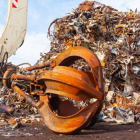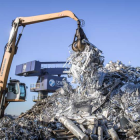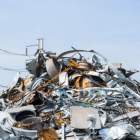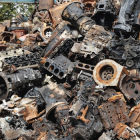Pakistan is a more significant importer of scrap in South Asia. Its imports data depicts no considerable increase in buying of ferrous scrap 215,351 tons in October 2022, with a minor increase of 0.5% compared to 214,435 tons in August 2022. A fall of 22% in imports during Jan-Oct 2022 compared to the same period in 2021. A decline in ferrous scrap imports is associated with specific reasons are:
Power & Gas Supply:
Utilities’ prices increased 11.92 % in October 2022 compared to 3.4% in September 2022. Power & gas loads shedding and increased prices caused production cuts in many steel mills, ultimately declining the demand for ferrous scrap.
Opening of Letter of Credit (LCs):
Opening LCs has remained a big problem for importers due to allegedly overcharging by a few banks in Pakistan. State Bank Pakistan (SBP) took notice of the few banks’ customers’ complaints in June-July and issued show-cause notices to the banks for overcharging.
Petroleum Prices & Transportation Cost:
Ukraine and Russia’s war created a shortage of petroleum products. Globally, the petroleum price hike has increased transportation and import costs. Transportation inflation had reported at 53.43% in Oct 2022 against 64.5% in Sept 2022.
Depreciation of Rupee:
Pakistan’s total liquid foreign exchange reserves declined from 22,835.9 million dollars in January 2022 to 14,678.9 in October 2022 but the lowest level at 13,310.9 million dollars in September 2022. More demand for foreign currency, like the dollar, had increased its value and depreciated the rupee. The foreign exchange rate dropped to 239.56 rupees against the dollar in July. Import costs increased in Pakistan.
Floods & Political Instability:
Floods in Pakistan have affected the infrastructure, such as roads, bridges, and railway tracks, creating a problem in the transportation of inputs to the production points and output to the market, which halted the production activities in many steel mills. Demand for ferrous scrap imports declined. Political instability in Pakistan, too, had deteriorated the confidence of the importer.






